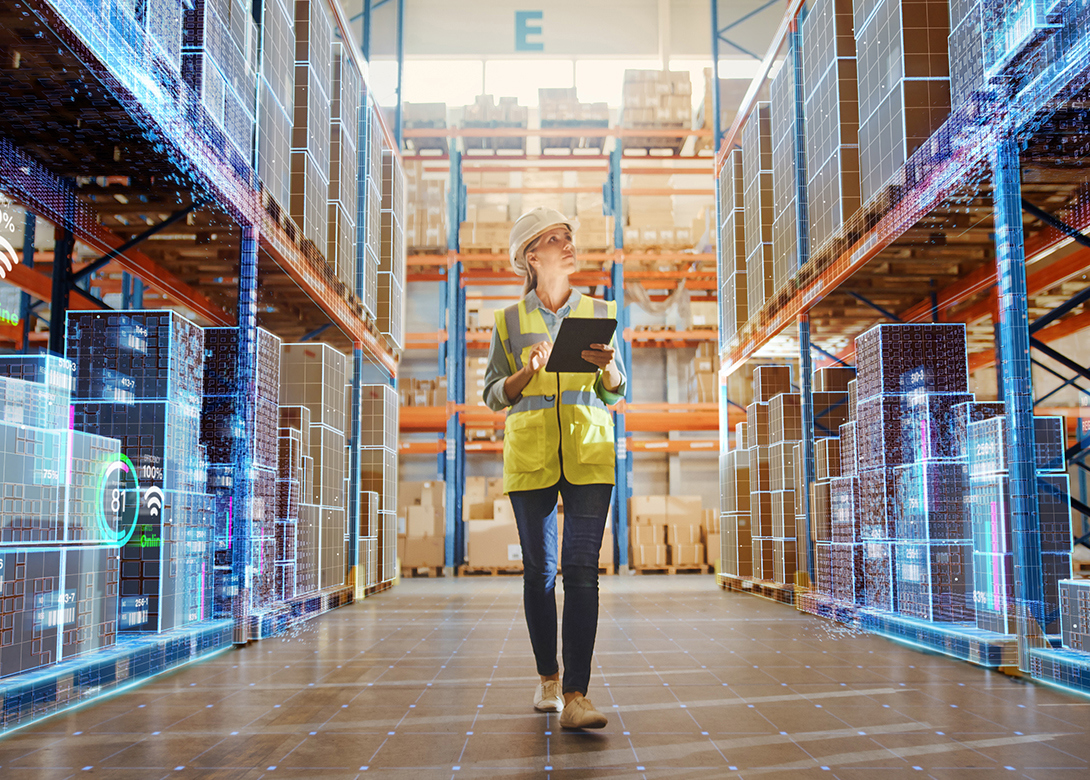
Bringing the predictive supply chain into traditional warehouse management is the goal of Austrian start-up TeDaLoS, which is active in industrial logistics and the use of wireless sensors connected to Cloud software – enabling customers to automatically monitor stock levels of everything from small parts for maintenance to raw materials for production.
As part of its business, TeDaLoS is able to supply its IoT-as-a-service business model, which provides location independent, wireless connectivity throughout Europe, and sees clients buy or lease relevant sensors that are connected with TeDaLoS Cloud software.
The ‘as-a-service’ business model enables ongoing costs to be charged as if by subscription, so these operating costs can be scaled up, or down, as required. During the Covid-19 pandemic, for example, this enabled customers to implement urgent projects despite budget challenges, with TeDaLoS “reaching the profit zone” in the middle of the Covid-19 crisis.
This was a period when many companies around the world became worried about stock availability, from material suppliers to industry, as well as wholesalers. However, because its automation technology services are quick and easy to implement, this has resulted in TeDaLoS realising a strong increase in customers from the wholesale sector.
According to Thomas Tritremmel, managing director at TeDaLoS GmbH, the fully automated solution can be put into operation simply, without technicians or IT, and does not appear with the TeDaLoS brand; even the Cloud software can appear in the wholesaler’s online layout as a white label. “Sensors continuously measure weight or distances in containers, for example. However, no one orders screws and electrical maintenance material in kilogrammes,” stated Thomas. “Just as no one manages liquids in millimetres, according to the fill-level sensor. The Cloud is the universal translator between technology and materials management.”
TeDaLoS is now using this recent business momentum to incorporate AI and new technology into its offering, such as already proven Kanban recording technologies, Radio Frequency Identification (RFID), as well as newer smart sensor devices such as wireless radar, infrared sensors and others. On the data side, investments are also being made in application automation and machine learning based on data.
Thomas highlights that the company’s first AI modules have already been released for customer testing, adding: “Wholesalers don’t want to have to make daily deliveries of small quantities, and customers don’t want to fill up their warehouses. The predictive supply chain, through IoT sensor technology on-site, and specialised Cloud software, saves on staff deployment, warehouse space, and the number of kilometres driven, while still ensuring item availability. Of course, this can also be expressed in CO2 savings.”

Biog
Will joined Fastener + Fixing Magazine in 2007 and over the last 15 years has experienced every facet of the fastener sector - interviewing key figures within the industry and visiting leading companies and exhibitions around the globe.
Will manages the content strategy across all platforms and is the guardian for the high editorial standards that the Magazine is renowned.







